By Miva | August 29, 2017

See why top ecommerce brands use Miva’s no-code platform to run
multiple stores, manage massive catalogs, and grow their revenue.
Last week, Miva Solutions Architect Benjamin Arp led a webinar on “How Successful Brands Scale Their Ecommerce Business”. In it, Benjamin—along with Director of Strategy & Solutions Philip Hansen—break down effective strategies and steps to overcome the challenges at each phase of business.
Whether you’ve just decided to sell online or you’re an industry trailblazer, knowing the challenges and strategies at your phase is essential to scale up. Get the tools and tips in this free webinar to implement the right growth strategies for your business.
The tools and tips meant to unlock new levels of growth are available to you today. Watch the free webinar today to scale your ecommerce business like a pro.
You’ve watched the webinar, but you have questions of your own. Read the answers Benjamin gave to top questions from the live session below, and then contact our Solutions Architects with your questions today.
A1: This is a really important question for business owners with an online storefront. To answer your question, let’s first take a look at an example company: Nike.
You can buy Nike products in several retail stores—stores such as Footlocker—which Nike does not own. You can also buy Nike products on marketplaces, a lot of which are online.
But Nike chooses to sell through their own website. Why?
On Amazon, your product page will look just like everyone else’s. The recommended products beneath yours may even be your competitors’. They don’t have to be yours, because Amazon controls the entire experience.
You also typically don’t own the customer data with marketplaces. They don’t give you the opportunity to see your data or get your customers’ email addresses in order to market to them. That is Amazon’s customer, or Jet’s customer, so they will market to them as they please while you fulfill their order.
So, if you want your products to be on the shelf in someone else’s store, or on the figurative shelf of someone’s online storefront, that’s a fine business strategy. You can do that.
All this to say, the ecommerce platform is one component to selling; it’s not the end-all be-all of sales channels. You have to take a holistic approach and ask:
A2: If you work with Miva Pro Services, our internal agency of developers and graphic designers, to build a custom ecommerce feature, you own that intellectual property.
At Miva, we use design best practices to build innovative solutions for our clients. In building custom ecommerce features on the front-end, we have found that there is not a lot of overlap, in regards to our clients and their needs. Every business’s product data and the needs of their customers look different, even within a similar industry.
Our goal is to provide you the best possible solution to your business challenge. Even if you haven’t dreamt up the solution to yours, our Solutions Architects are here to help reimagine what is possible to scale your business.
Related: See how a custom ecommerce feature can better the customer experience and boost your competitive advantage.
A3: Great question. Here are three, of many, reasons to choose Miva over another ecommerce platform:

Cheryl Elizaga is a Brand Strategist and Copywriter with nearly a decade of experience catalyzing meaningful, measurable action for Fortune 100 companies and industry pioneers alike. A contributing author to the Miva Blog, Cheryl helps ecommerce companies own their brand and harness the tools and technology of the leading Miva platform to drive growth.
Love it? Share it!
No worries, download the PDF version now and enjoy your reading later...
Download PDF Miva
Miva
Miva offers a flexible and adaptable ecommerce platform that evolves with businesses and allows them to drive sales, maximize average order value, cut overhead costs, and increase revenue. Miva has been helping businesses realize their ecommerce potential for over 20 years and empowering retail, wholesale, and direct-to-consumer sellers across all industries to transform their business through ecommerce.
Visit Website